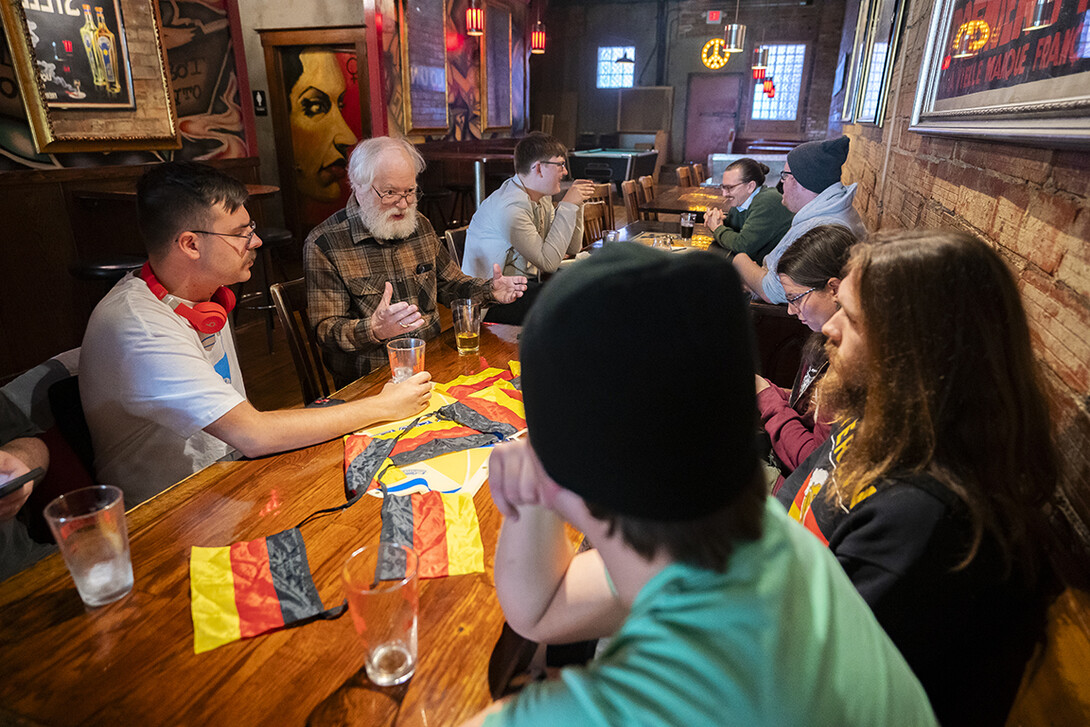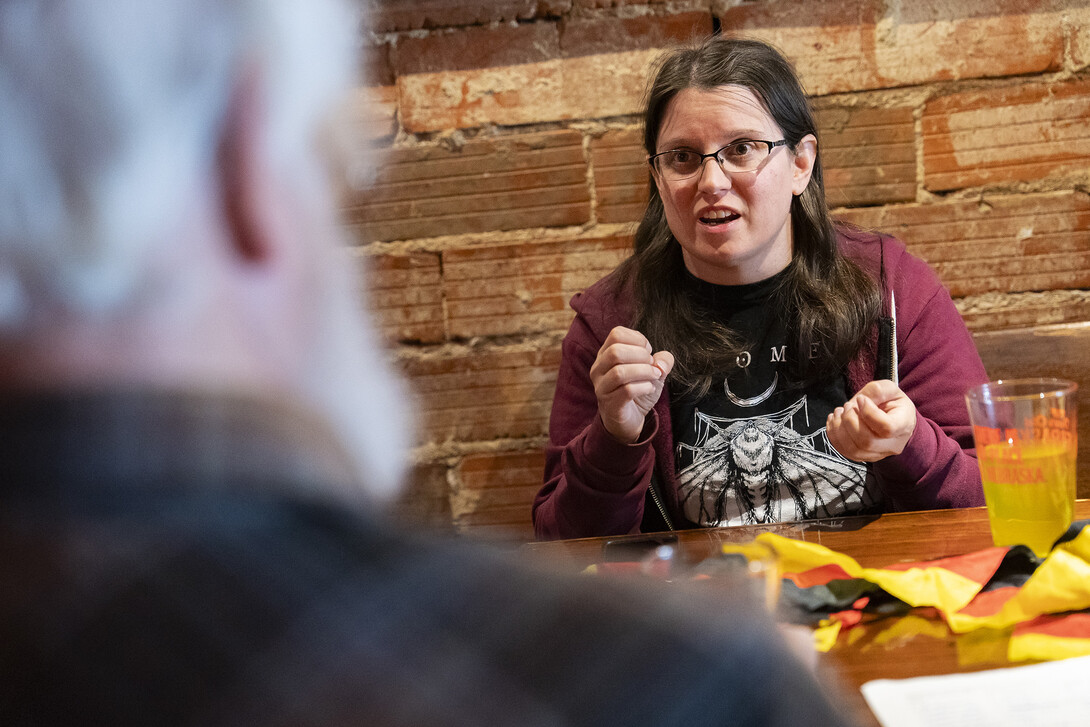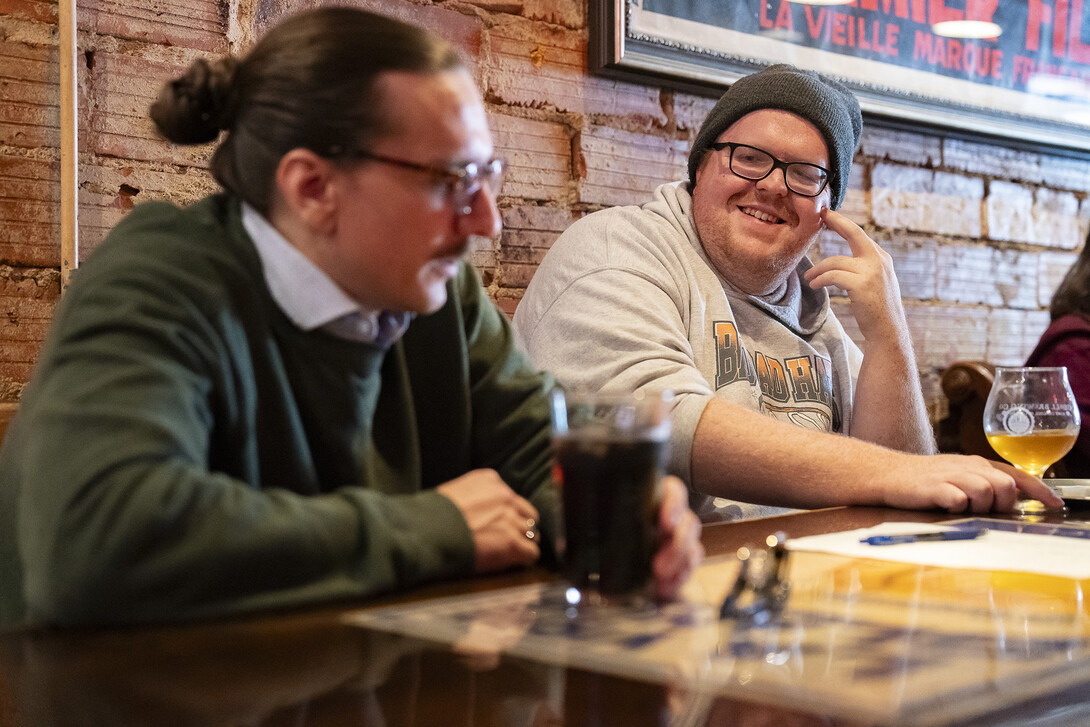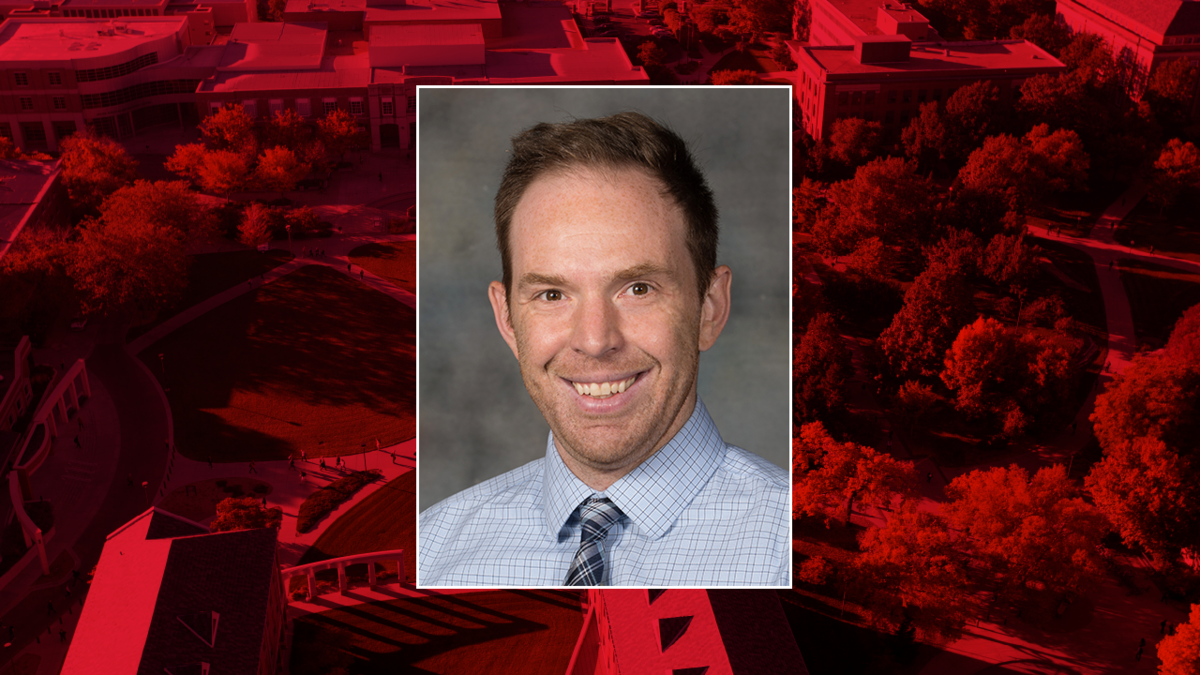
Speaking a second language in a conversational manner can provide a powerful supplement to what students are learning in the classroom.
With that in mind, the Department of Modern Languages and Literatures hosts conversation tables to aid students learning and give them an opportunity to practice their new language skills in a relaxed setting.
“That’s really valuable experience, to have that natural conversation,” Jeffrey Jarzomb, assistant professor of practice in German, said. “It’s the best practice for language learning…It definitely shows you how far people can progress and what you can do with the language.”
Language areas across the department hold regular conversation tables where students flex their speaking and listening muscles. Students taking courses in that language, others interested in that culture, native speakers and members of the Lincoln community show up to chat. Along with the language education, Jarzomb said the community-building aspect is worthwhile.
“It shows how strong the community bonds are,” Jarzomb said. “Programs have to have a sense of community and the ability to see and talk with professors and advisers outside of the classroom.”
Each conversation table might be structured a bit differently by language. Some are less formal and a better fit for people further along in their knowledge of the language, where people are more likely to sit down and start speaking socially. Others might begin with a topic like music or fall activities to get conversation started, perhaps with questions as prompts.

Madoka Wayoro, director of the Kawasaki Reading Room where Japanese conversation tables are held, said people at all stages of language learning, from beginners to native speakers, can benefit from this interaction.
“We accommodate all levels,” Wayoro said. “We can change the structure depending on who is here.”
Ana Tudela Martinez, graduate student in Spanish and a conversation table leader, said the sessions can be an opportunity to expand discussion into a wider variety of topics beyond more straightforward grammar lessons covered in class.
“Perhaps there are cultural aspects, traditions, conversations we would like to have, and we don’t have the chance to bring them to the classroom, but we can bring them to the conversation table,” she said.
Wayoro said the environment makes language learners more willing to take chances in speaking without being concerned about grades. Even if someone else corrects something they said, they’re still learning.
“In class, nobody wants to make mistakes, but this is a place they can make mistakes,” she said. “The lesson is important but I want people to use this as follow-up. They talk about the things they didn’t understand in class…without being embarrassed.”
Conversation — and improvisation — also forces students to be more creative with phrasing and vocabulary, Tudela Martinez said. A more developed speaker, for example, might have to be more innovative in having to quickly rephrase a statement to someone who is still at a beginner level.
“It’s as spontaneous as it can be,” Tudela Martinez said.
Additionally, the students’ connections with the department and community can make them aware of opportunities like Fulbright scholarships or study abroad experiences. Jarzomb said when he was an undergraduate student, this information was invaluable.
“All of the opportunities I got came from community events and seeing what other people had done,” he said.

Josh Machan, a sophomore sports media and communication major from North Sioux City, South Dakota, is enrolled in a German 101 course and has been regularly attending the conversation table. He said trying to engage in conversation so early in his language education is challenging, but it’s helpful to practice key phrases and listen to more advanced speakers.
“When I first came here, I was a little intimidated,” Machan said. “They are all extremely patient with me. They give me the opportunity to be comfortable saying small tidbits, even if it’s not a lot.”
Wayoro said an individual’s goals coming out of a conversation table can be very simple. If someone wants to start as small, they still have the opportunity to grow from there.
“If students come and have one phrase practiced or memorized, that’s wonderful,” she said.
The opportunity to start putting together those building blocks while connecting with others who have become more fluent can encourage students to continue working on their language skills. Tudela Martinez said it gives many students in her conversation tables a goal to work toward.
“It is very self-motivating to see someone who is just like you, who is an English native speaker who might have started taking Spanish in university, and now they are so advanced,” Tudela Martinez said. “You are seeing someone who could be you if you work towards it.”
The schedule for Conversation Table gatherings is: German, 4 p.m. Tuesdays at Yia Yia's, 1423 O St.; Spanish, 5 p.m. Wednesdays at the Language Lab, 302 Burnett Hall; Japanese, 4 p.m. Fridays in the Kawasaki Reading Room, Jackie Gaughan Multicultural Center; Chinese, 3:15 p.m. Tuesdays and Thursdays at the Language Lab; and French, 3:30 p.m. Mondays at Yia Yia's.
For more information, contact the Department of Modern Languages and Literatures at modlang@unl.edu or 402-472-3745.







